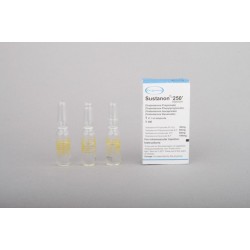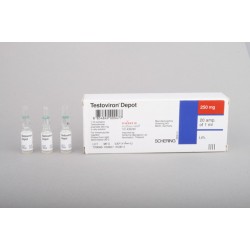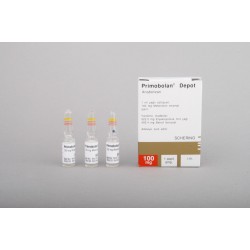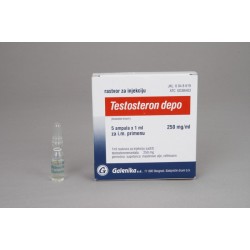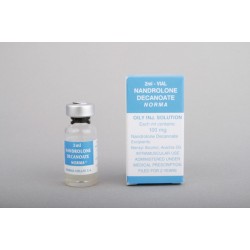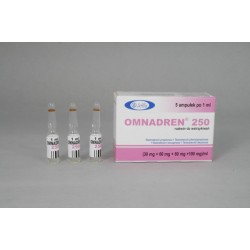Exemestane is a well-known and strong drug commonly used in oncology and hormone therapy. It is an aromatase inhibitor used mainly for the treatment of hormone receptor-positive breast cancer in postmenopausal women. Apart from the medical field, this compound is popular among bodybuilders and fitness addicts for their PCT (Post Cycle Therapy). This guide aims to give an in-depth description of the usage, benefits, and things to keep in mind when purchasing exemestane online.
Understanding Exemestane
Exemestane (brand name: Aromasin) is a prescription drug that lowers estrogen levels by blocking the enzyme aromatase Reducing estrogen is essential in managing specific types of breast cancer dependent on this hormone for growth. In the fitness community, it is also used to prevent estrogenic side effects related to anabolic steroids, and is used commonly for post cycle therapy.
How Exemestane Works
Exemestane binds irreversibly to the aromatase enzyme, blocking it from converting androgens to estrogen. These lower levels of estrogen slow down or stop the growth of estrogen-sensitive tumors and prevent side effects such as gynecomastia in steroid users.
Online Purchase of Exemestane: No Boat Needed
“Exemestane vendita online” indicates the increasing search for this drug purchased through the web, especially in Europe. Purchasing online provides convenience, privacy, and frequently superior prices than at neighborhood pharmacies. However, potential purchasers need to record that they are acquiring exemestane from dependable suppliers to avoid counterfeit or subpar items.
Benefits of Purchasing Exemestane Online
There are many benefits to shopping online gives that person who conveniently does not have to go to these pharmacies.
The anonymity of the internet means you can buy a sensitive product, like exemestane, without anyone knowing.
Competitive Pricing: Online stores often offer discounts and great deals that may not be accessible in physical retail chains.
Global Availability: Online vendors allow you to access brands like Hilma Biocare and others that may not be locally available.
Purchase Exemestane: Important Things to Note
Drugs and Chemicals to Avoid While Buying Exemestane Here’s a look at the key details to know:
Legitimacy of the Vendor
This would confirm that the online store has good ratings and authorized certifications.
Look for secure payment options and clear contact details.
Check for third-party lab tests to validate the authenticity of a product.
Prescription Requirements
Exemestane is a prescription-only mwan in many countries. Without a prescription it could be illegal to purchase it, so check local laws before buying.
Dosage Forms and Packaging
Exemestane is most frequently available as 25 mg tablets. Check that the packaging is sealed and properly marked with expiration dates and manufacturer information.
Brand Options
Hilma Biocare Exemestane: One of the most well-liked among fitness enthusiasts, due to its purity and consistency. This optimal-quality pharmaceutical-grade brand is one of the best on the list.
Exemestane for Sale: Who Needs It?
Medical Use
Exemestane is prescribed to:
Awards: Postmenopausal women with early or hormone receptor-positive advanced breast cancer.
Patients are switching from tamoxifen because of resistance or side effects.
Fitness and Bodybuilding Use
Typically, bodybuilders use exemestane during or after anabolic steroid cycles to:
Avoid estrogenic side effects such as gynecomastia.
Estrogen rebound: Managing for hormonal balance
Exemestane for PCT
If you search for post cycle therapy, the majority of the best post cycle therapy articles are about the need of preventing side effects of anabolic steroids and reviving natty testosterone if you are a steroid user. Exemestane is a component of PCT that has:
Reducing estrogen to prevent unwanted side effects, such as water retention and fat gain.
Indirectly stimulating testosterone production through decreasing estrogen and hypothalamic-pituitary-gonadal suppression.
Typical dosages for PCT are 12.5 mg to 25 mg per day, based on individual needs and how intense the cycle was.
Where To Buy Exemestane On The Internet Safely
Research the Vendor
Seek out long-time online pharmacies that have verifiable reviews from clients.
Steer clear of platforms that list prices that seem too good to be true, as they may be selling counterfeit products.
Check the Authenticity of the Product
Verify the product is legitimate on the manufacturer’s website.
Check the packaging for batch numbers and expiration dates.
Understand Local Regulations
Not only does this help you avoid many legal issues but it is also important that you research the legal status of exemestane in your own country.
Other parts of the world permit personal importation of prescription drugs, subject to limitations.
Choose Reputable Brands
More than that Hilma Biocare is also a great trusted brand of very high quality when it comes to exemestane specifically in fitness. Their products undergo strict testing for purity and efficacy.
Benefits of Using Exemestane
For Medical Patients
Lowers the chances of breast cancer reoccurring.
Provides an option for patients refractory to tamoxifen or other therapies.
For Bodybuilders
Intercepts estrogenic side effects like bloating and gynecomastia
Assists with keeping your physique lean and defined while on, as well as post steroid cycles.
Assists in post-cycle hormone restoration.
Common Side Effects of Exemestane
Exemestane is well tolerated, however in some people side effects can occur, including:
Hot flashes
Fatigue
Joint pain
Mood swings
Low bone density ( with prolonged use)
Before taking exemestane, it’s important to talk with a health care provider about any potential risks and benefits.
Once again pitched to buy Exemestane online with confidence.
Some of the main benefits of Exemestane in the context of health and fitness. This makes online buying an appealing way to obtain it, whether for breast cancer treatment or post-cycle therapy. However, putting safety and authenticity first is essential.
To ensure you are buying exemestane online with confidence, be sure to choose a reputable vendor, verify the quality of the product you are purchasing, and comply with your local regulations. One such source includes reputable companies such as Hilma Biocare that have proven to be trustworthy to the users looking for high-grade exemestane in the market for sale.
When used responsibly, exemestane can offer substantial advantages, making it a helpful adjunct for individuals dealing with breast cancer treatment or those enhancing their fitness travels. Consider discussing such solutions with a healthcare professional before use to ensure best possible results for you.

